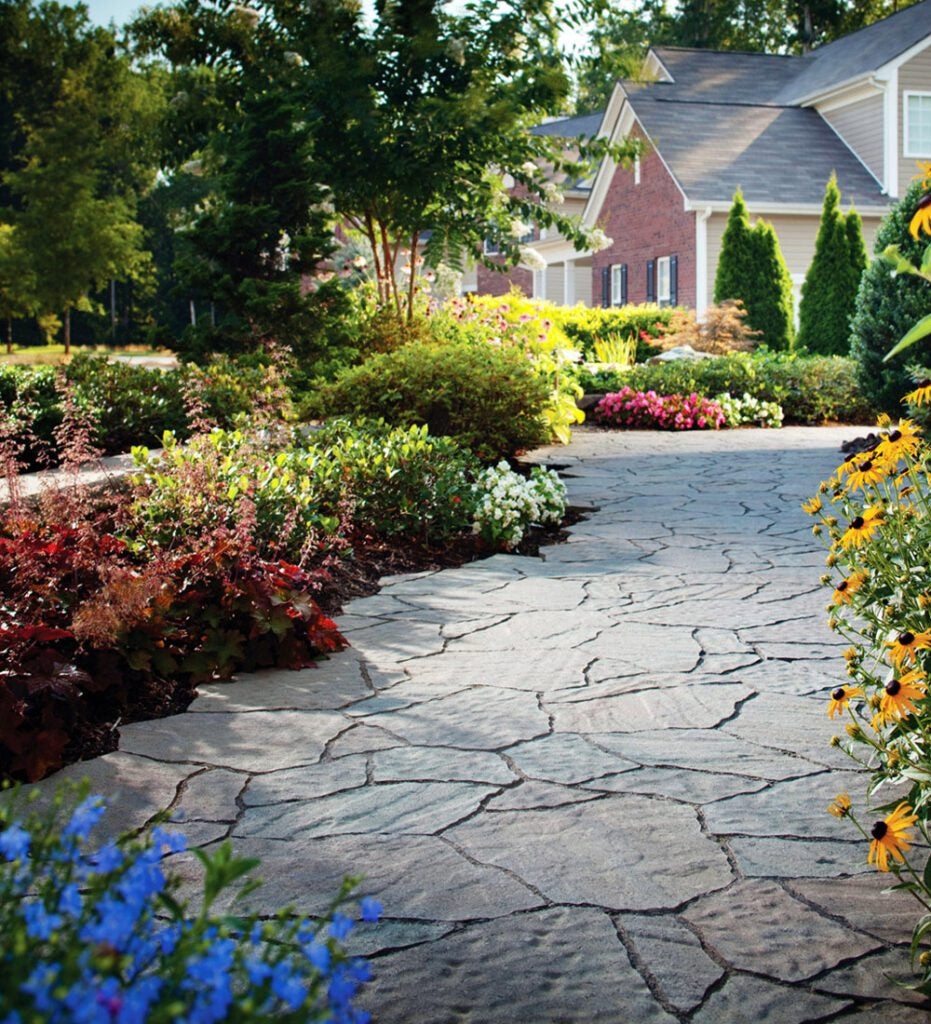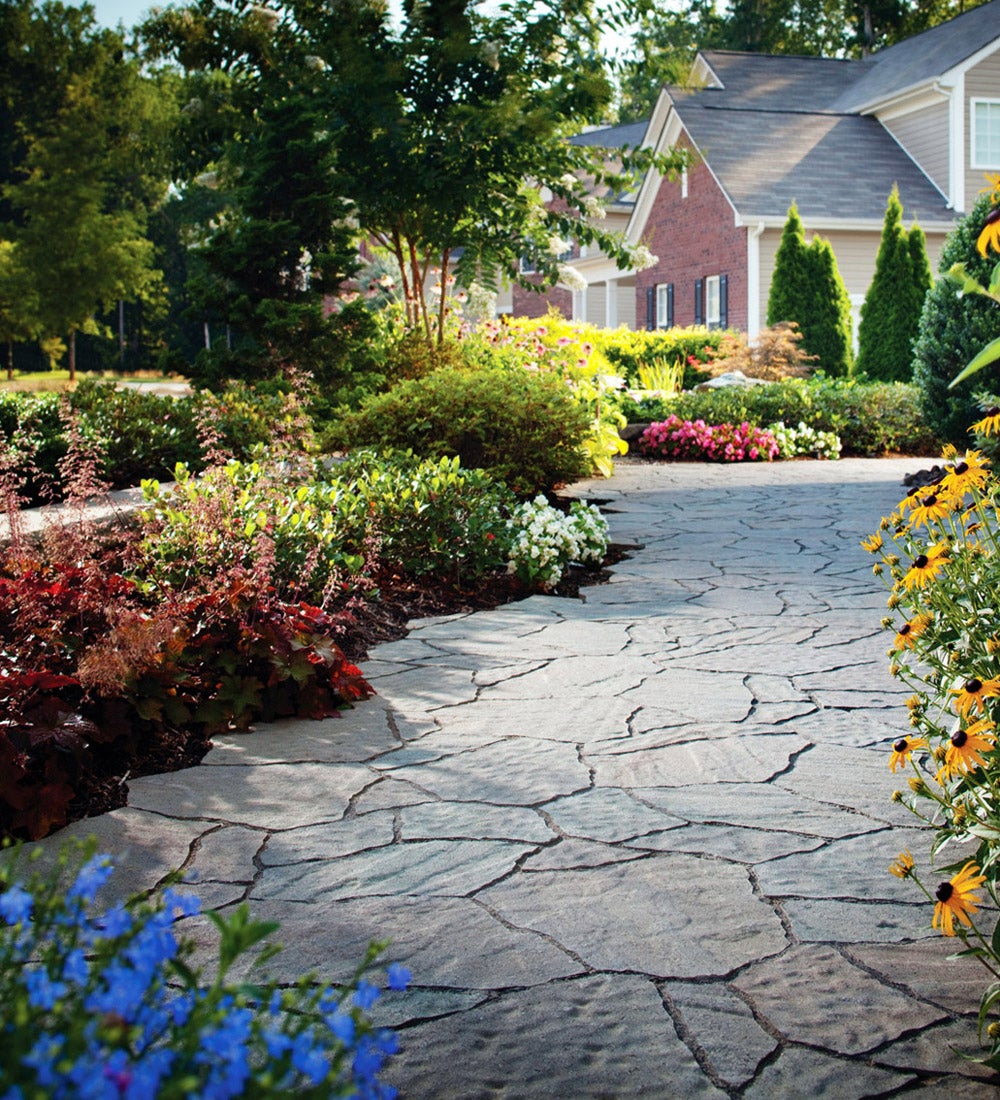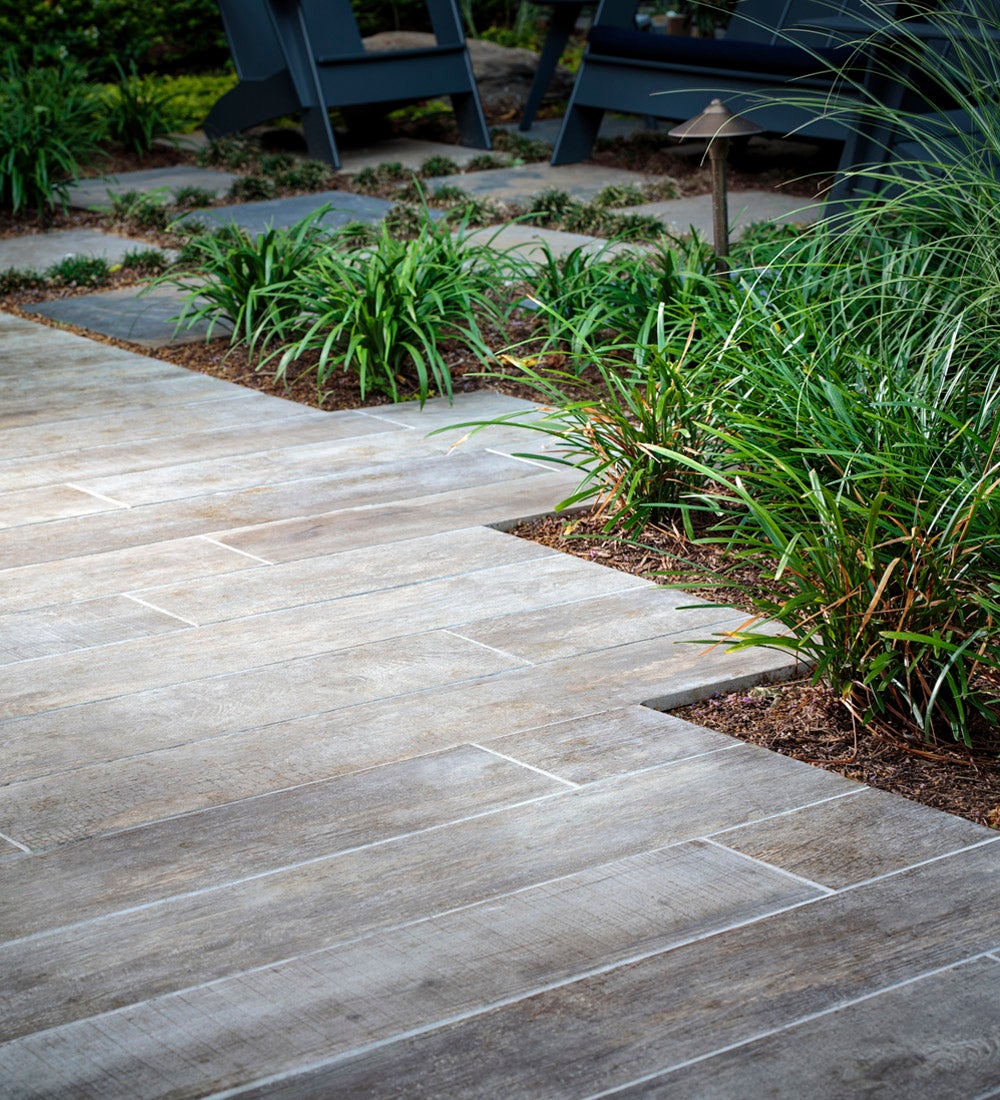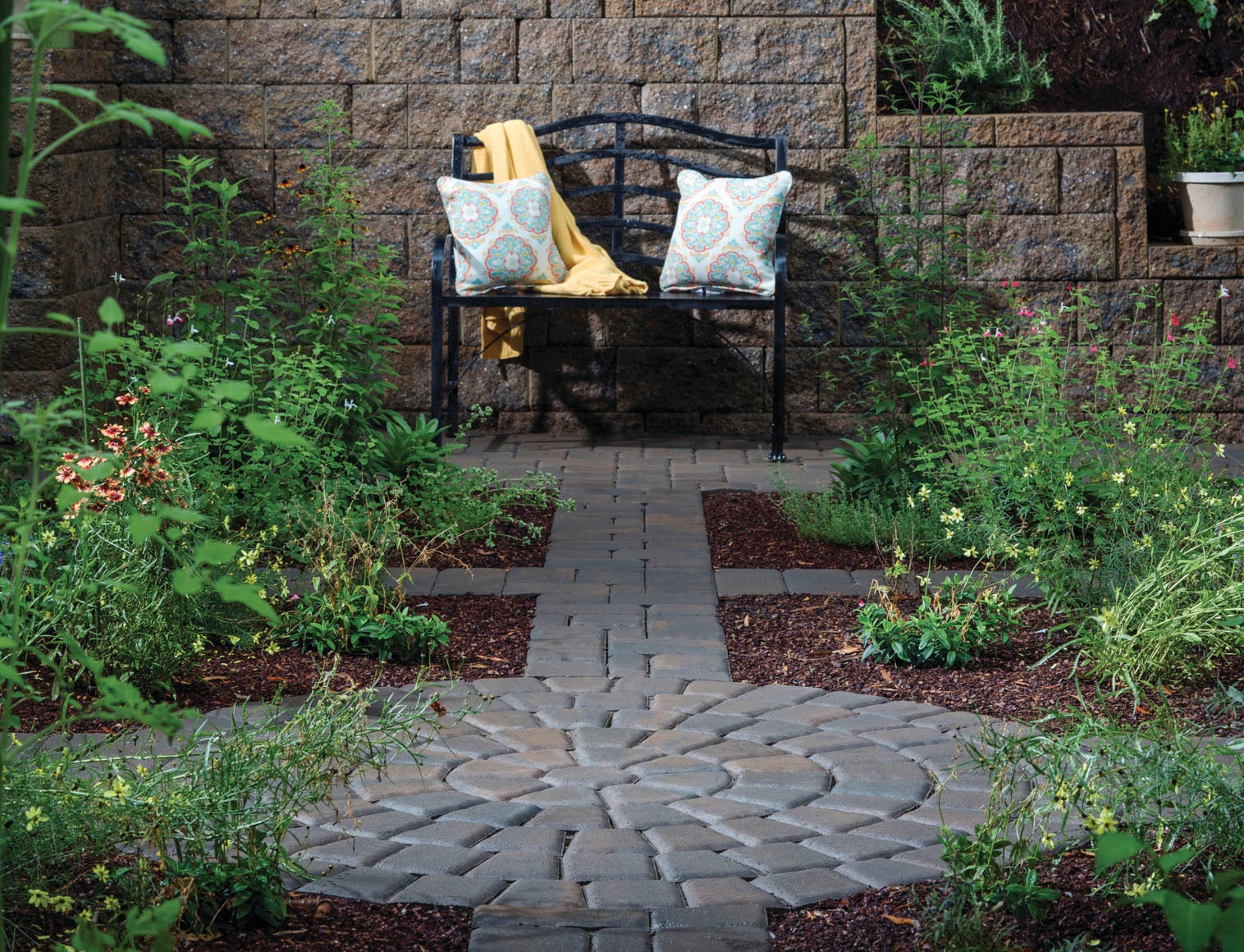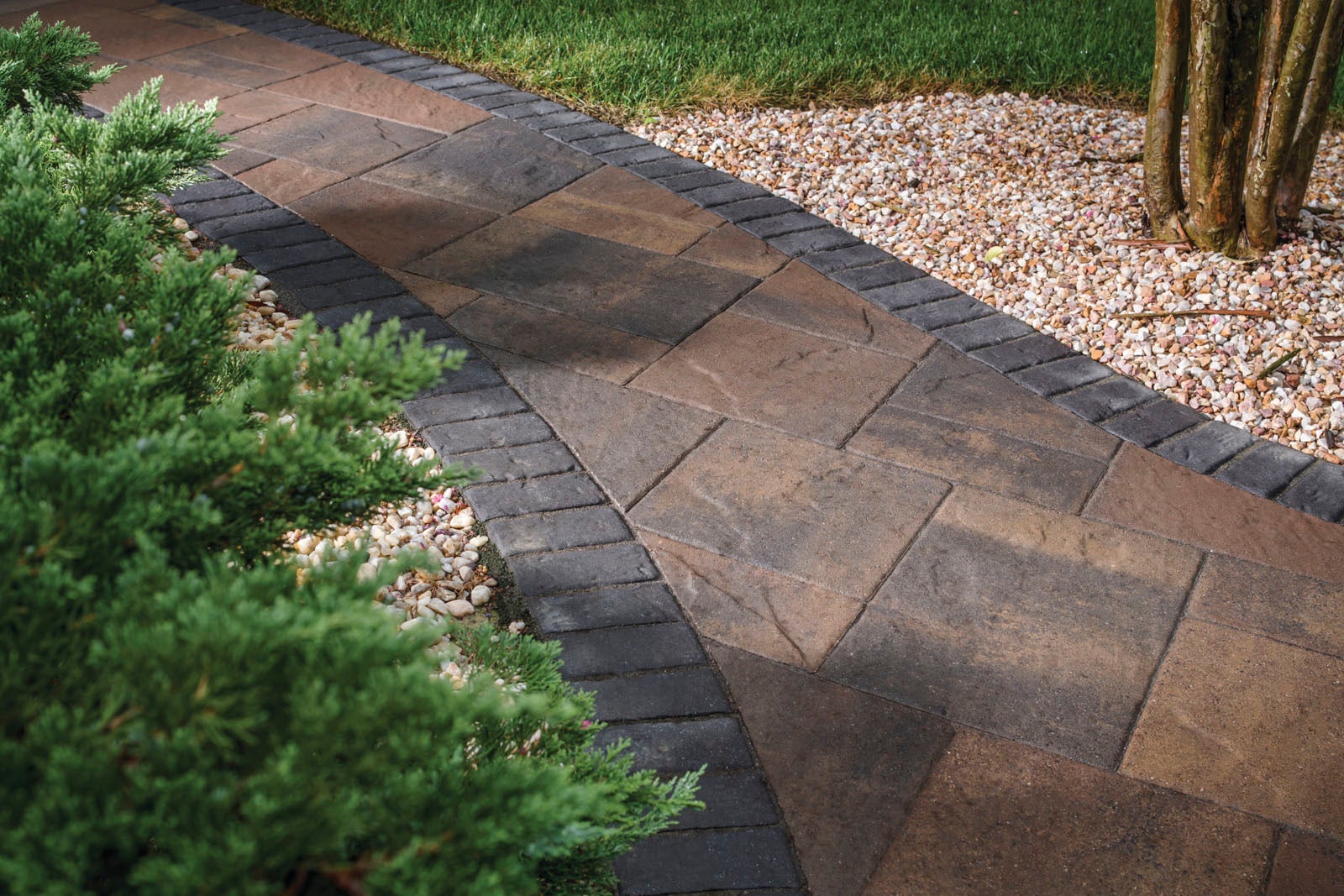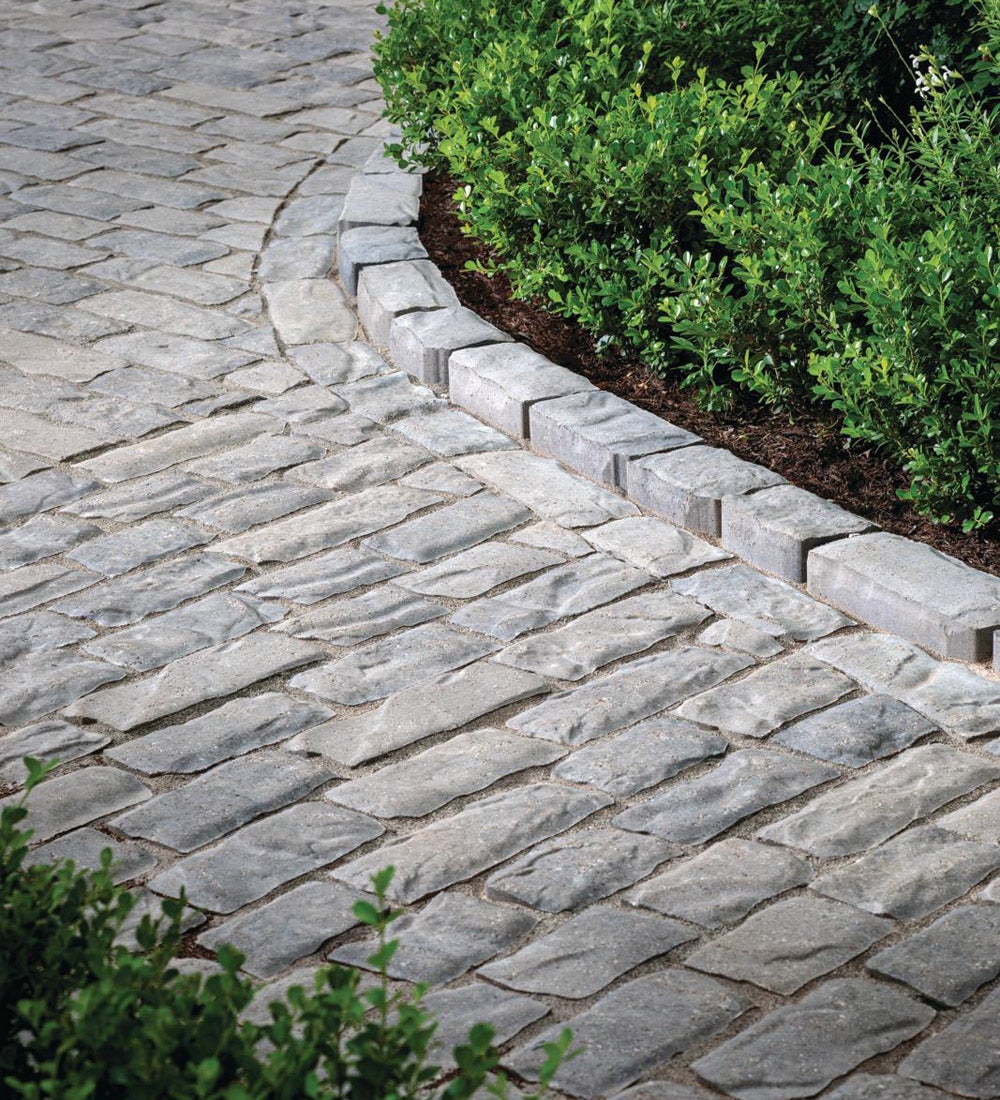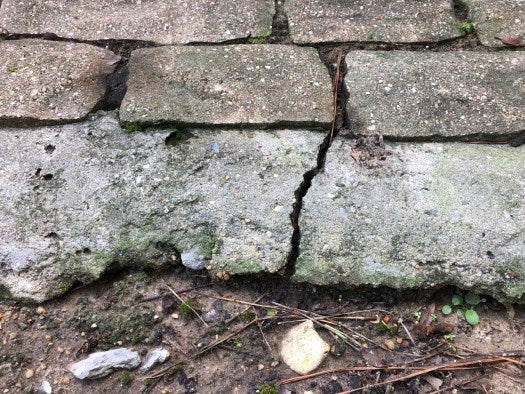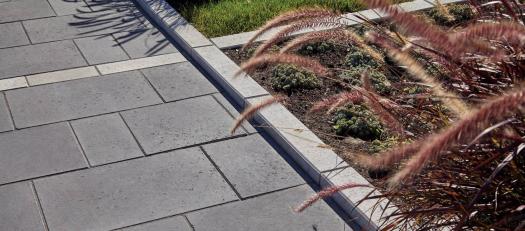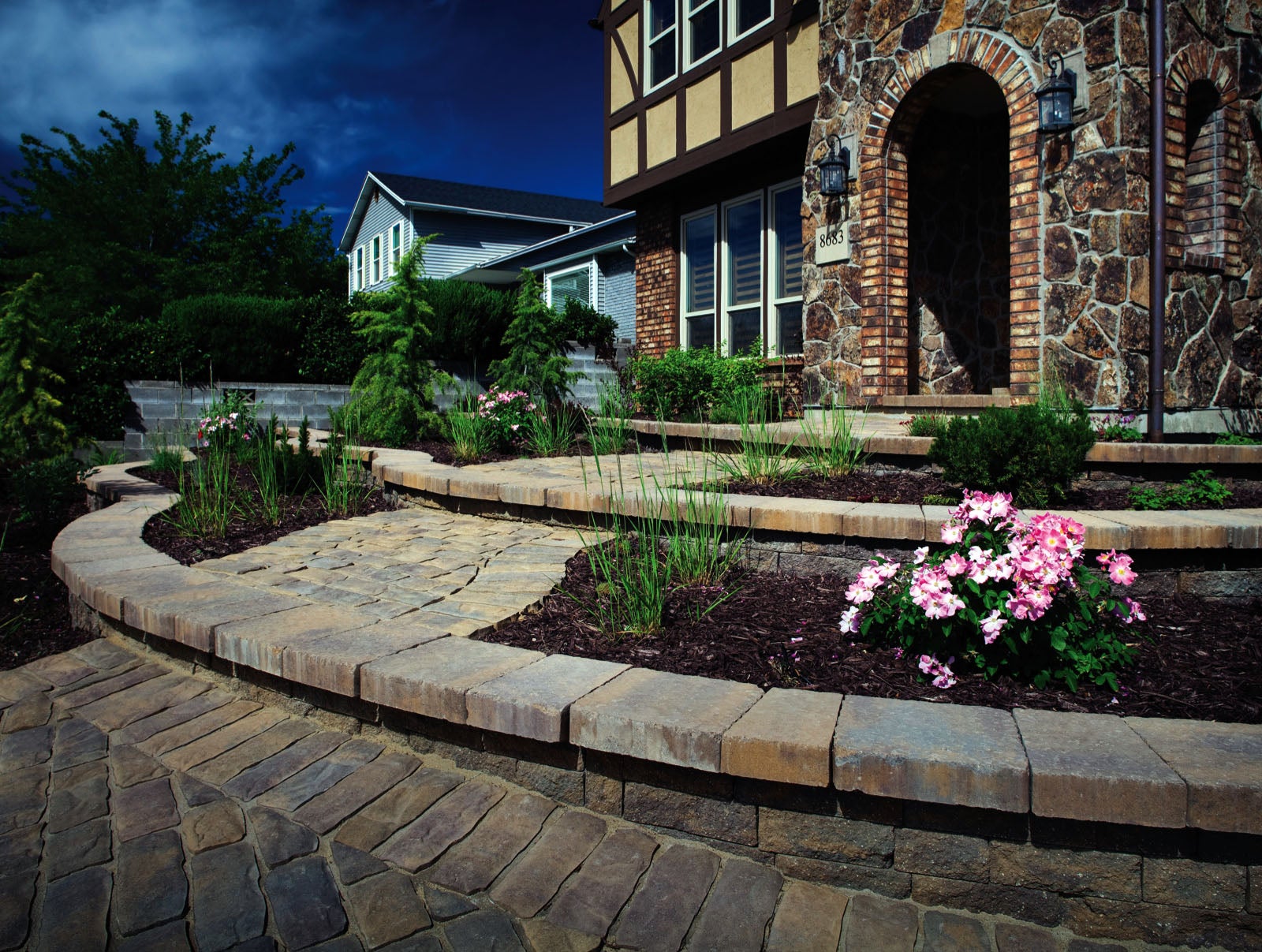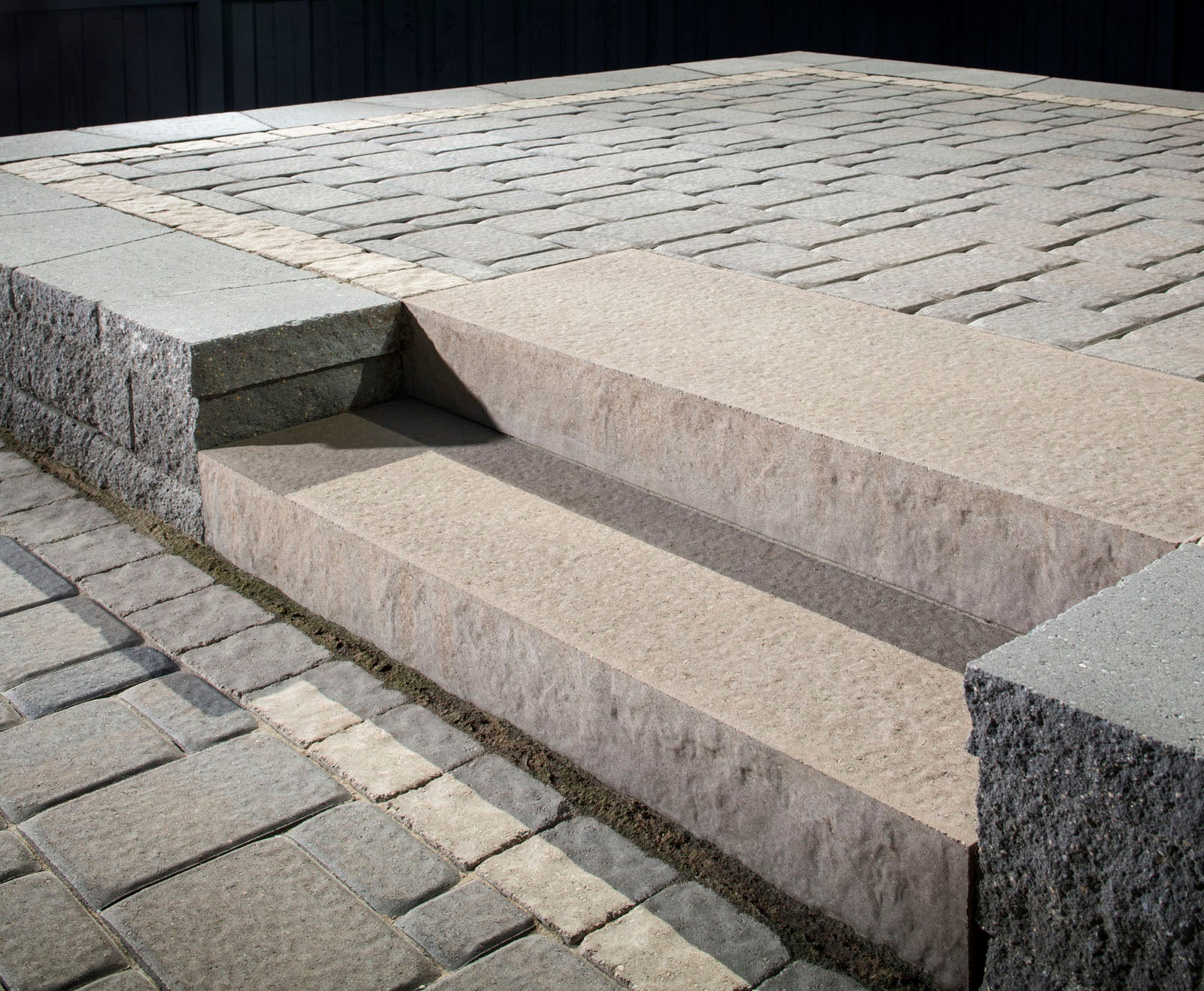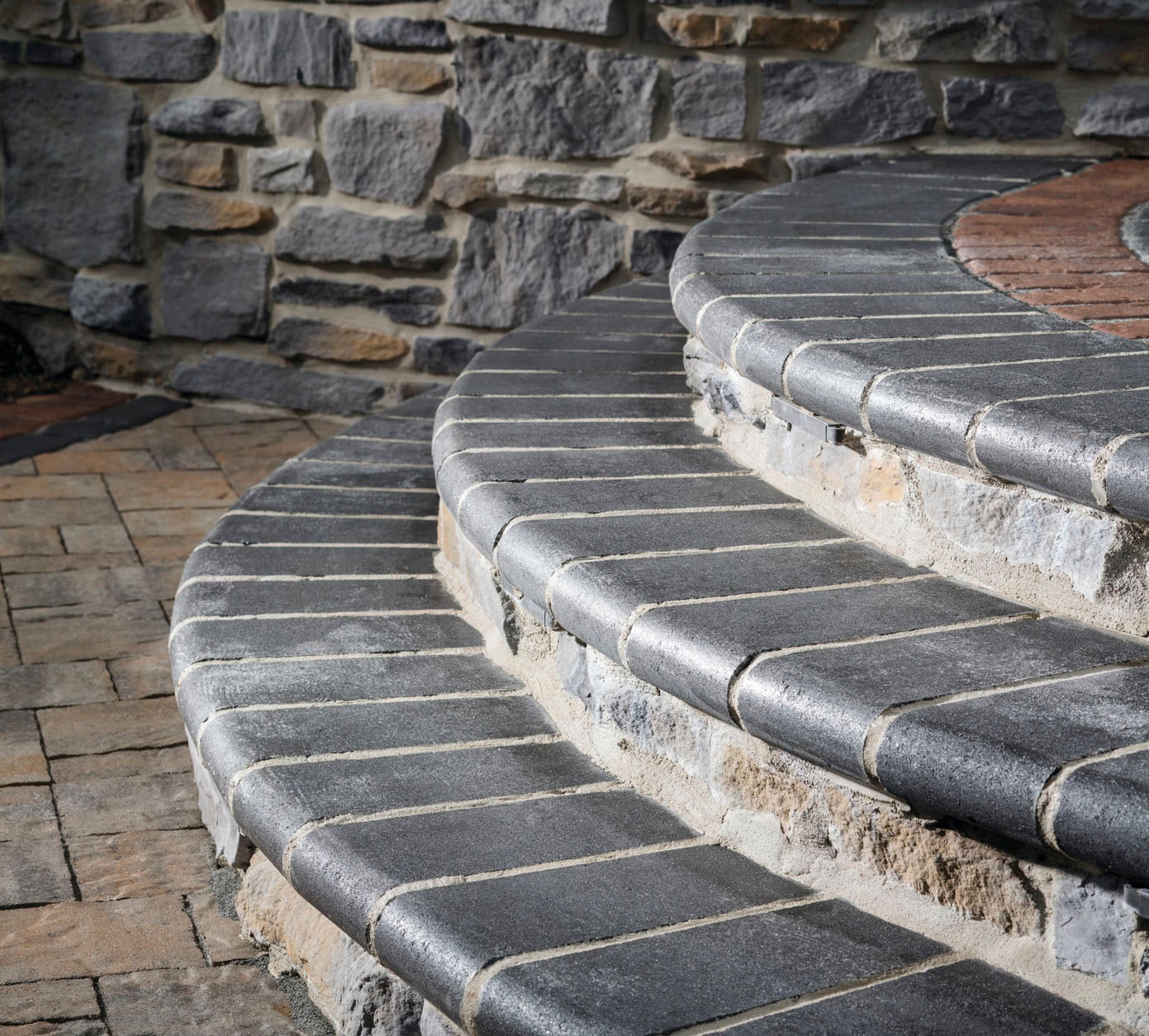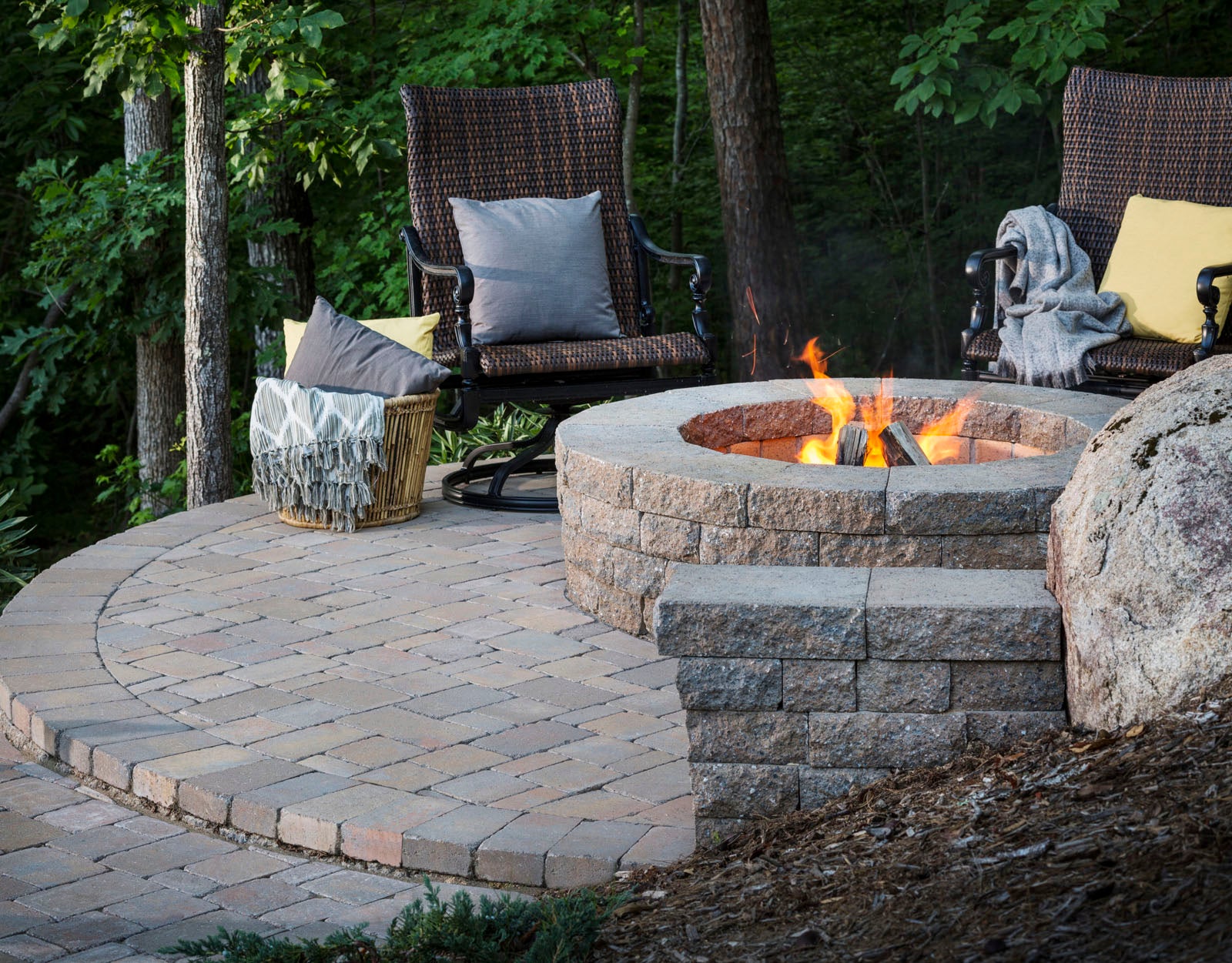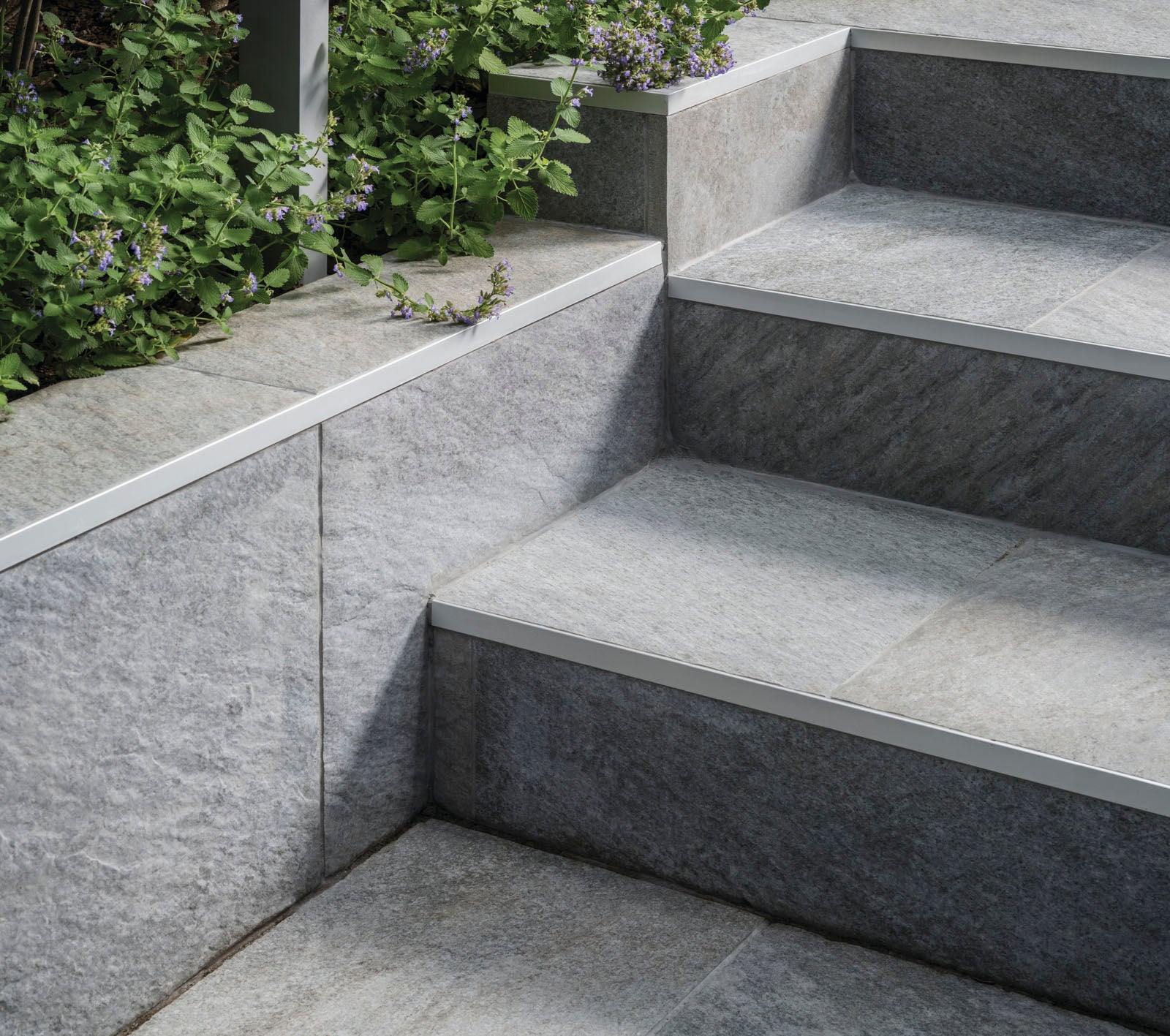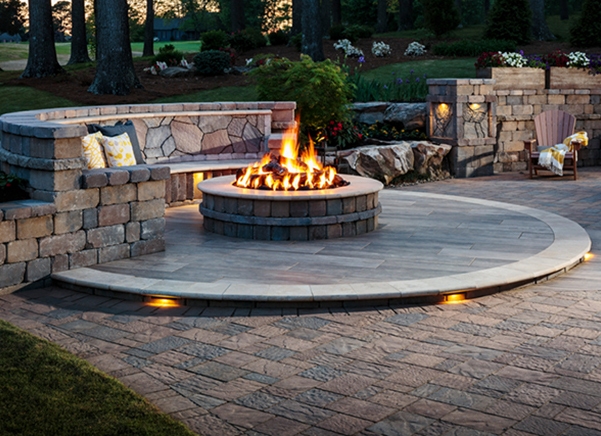Long-lasting beauty is the primary reason a homeowner chooses Belgard pavers for a patio, driveway, walkway or pool deck. To create the most attractive look, and to ensure longevity of each project, it’s important for pavers to be edged properly.
Paver Border Design Options
There are numerous options for paver patterns and border designs. Alternatives include everything from a simple lay with no border to intricate contrasting borders or raised edgers. An emerging trend is to entangle the paver field with the surrounding landscape in what is known as biophilic outdoor design.
Paver Edge Restraints
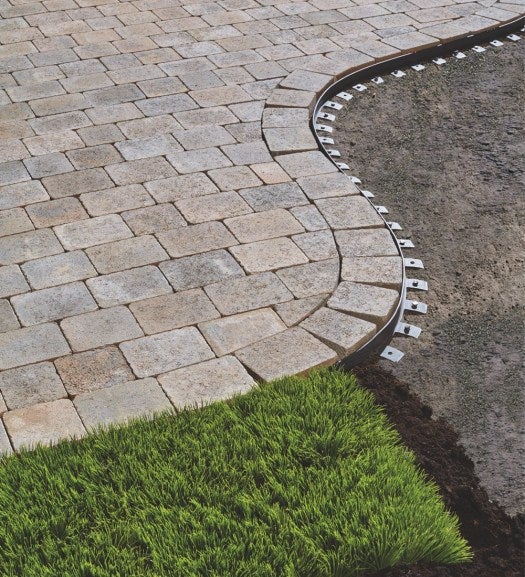
No matter which border option is chosen, the paver field should be secured with paver edge restraints. Techniseal® offers rigid paver edging in 8-foot sections or coil edging in 40-foot rolls that can both be cut as needed during installation to fit the paver field. For curves, restraints can be snipped at the top if needed for additional flexibility. Galvanized spikes hold the restraints in place, securing pavers to prevent future movement. Once sand and sod have been added, the restraints are hidden underground to create a nice clean look. In the case of a stepping-stone design, restraints are not necessary unless each “step” in the design includes multiple pavers. Pavers that abut a wall or concrete slab do not require edge restraints on the abutment side.
Poured or Troweled Concrete Curbing
Some contractors hold pavers in place with either poured or hand-troweled concrete curbing, however this practice is not ideal. Although acceptable by ICPI standards, it is not recommended in northern climates. This type of concrete curbing can also be an unwise choice for moist climates or areas with expanding clays. Over time, the concrete edging can crack or chip away, detracting from the look and reducing the stability of the paver field. For those who like the clean look of a poured concrete edge, the better option would be to use manufactured concrete edgers like Melville™ Curb, which have a higher strength and are designed for this specific purpose. Manufactured paver edgers and curbs should be held in place with standard paver edge restraints, like any other paver border.
Securing Steps
There are various options for forming steps at the edge of a paver field. Retaining wall block provides an excellent option for this, as it is designed to hold the earth back and provide stability. In addition, the coordinating retaining wall cap units are designed to provide a finished look with an aesthetically pleasing exposed edge. Bullnose coping is also an excellent option for step edging and provides a clean look that can be used to coordinate with planters and pool coping. However, most coping units are lightweight and should be secured in place with mortar or masonry adhesives to provide stability. For a more uniform look, the pavers used for the paver field can also be used to edge the steps but will also require mortar or adhesive for stability. Heavier materials like wall cap units, paver step units or large natural stone slabs will be heavy enough to stay in place without requiring additional reinforcement. When using porcelain pavers to form steps, framework and adhesive will be required.
. . .
